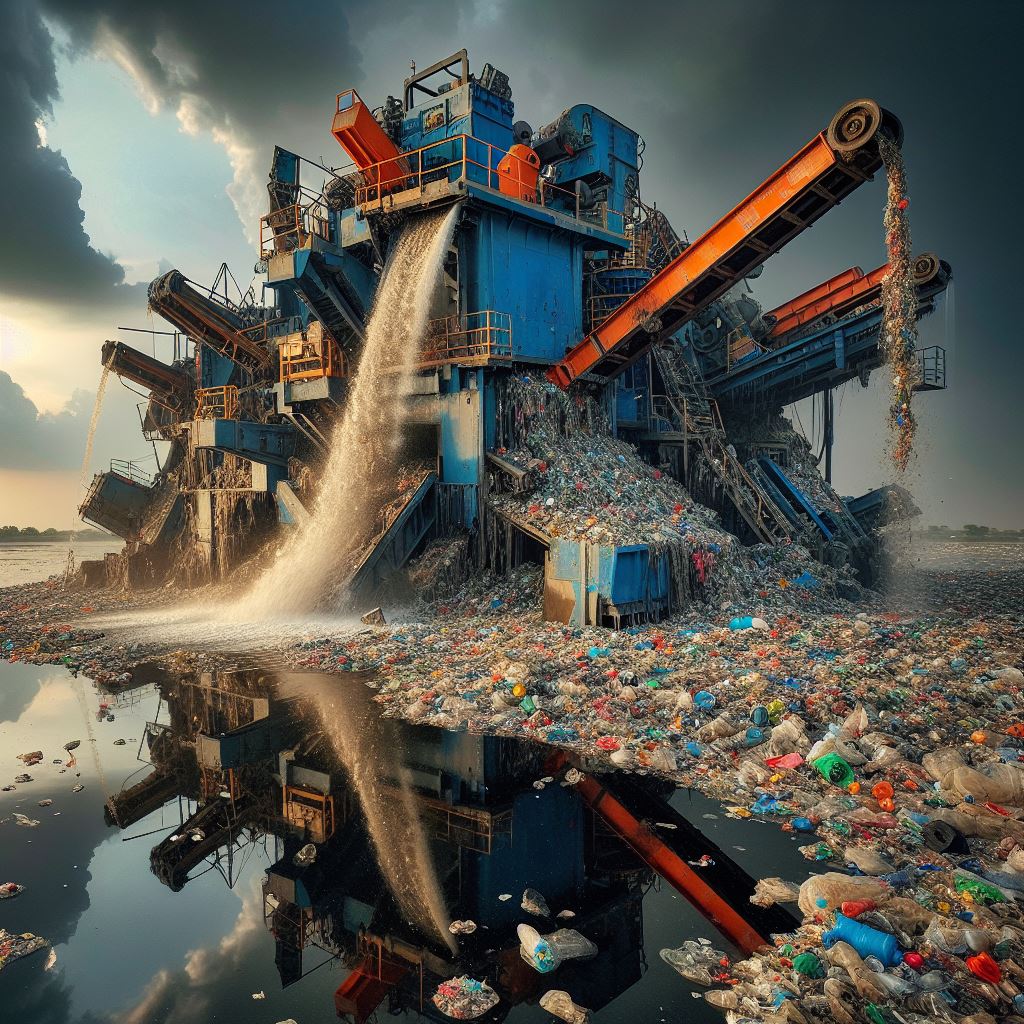“Indus River at Risk: Urgent Call for Action Against Plastic Pollution”

M,Zubair Anjum:
Islamabad: The majestic Indus River, a lifeline for Pakistan, faces an imminent threat from the pervasive menace of plastics. As plastic pollution continues to grow at an alarming rate, finding sustainable solutions becomes imperative. The unchecked proliferation of plastic waste contaminates the river, jeopardizing its ecological balance and posing a severe threat to aquatic life. Plastic debris irresponsibly discarded in and around the river disrupts the natural ecosystem, affecting both marine species and the broader environment. The consequences of this pollution are far-reaching, requiring urgent measures to mitigate the crisis and restore the Indus River’s health.
Embracing cutting-edge technologies such as advanced crushers presents a transformative opportunity in waste management. Recycling plastics effectively through these crushers can help curtail escalating environmental degradation and provide a fighting chance for the Indus River’s restoration. Hi-tech crushers break down plastics into manageable components, streamlining the recycling process and significantly reducing the volume of plastic waste that ends up in landfills or water bodies. This technological approach not only helps protect the environment but also promotes efficient waste processing and resource recovery.
Recycling plastics with advanced crushers contributes to environmental conservation by preventing plastic waste from polluting the river and surrounding areas. It also supports resource conservation by enabling the extraction of valuable materials from plastic waste, fostering a circular economy that reduces reliance on new plastic production. The adoption of such innovative recycling technologies generates economic opportunities by creating jobs, encouraging industrial innovation, and positioning Pakistan as a leader in sustainable waste management practices.
Government intervention plays a crucial role in implementing large-scale recycling programs. Policies that promote the use of hi-tech crushers and provide incentives for businesses adopting sustainable practices can drive meaningful change. At the same time, community engagement is essential in fostering a collective sense of responsibility. Educating the public about the benefits of recycling and encouraging grassroots movements can help shift mindsets and inspire action toward environmental protection.
Plastic pollution poses an imminent threat to the Indus River, but the power to reverse this peril lies in proactive measures. By embracing recycling with hi-tech crushers, Pakistan can move towards a more sustainable and resilient future. Protecting the Indus River requires swift and decisive action, ensuring that this invaluable natural treasure remains a source of life for generations to come.





